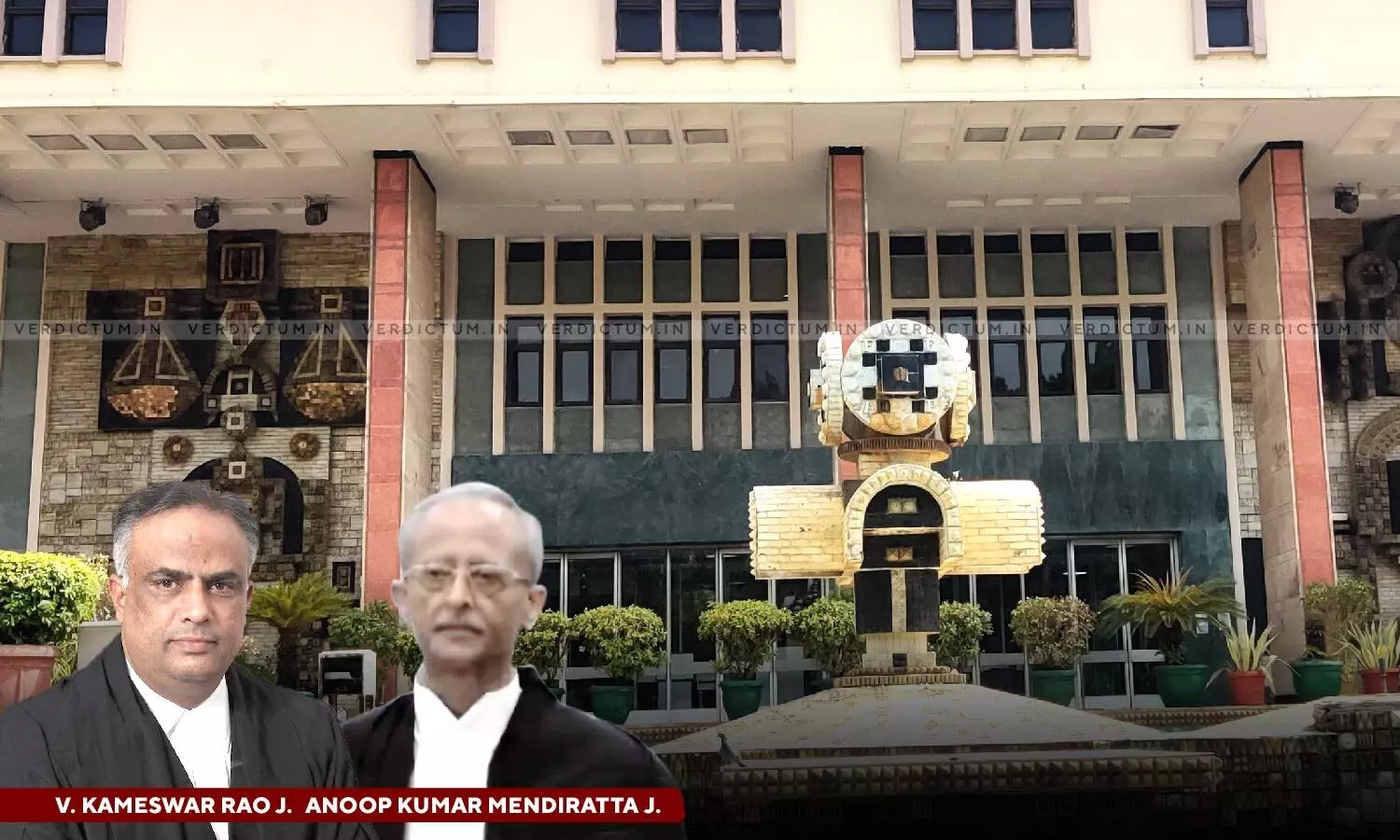
Delhi High Court Directs Registrar To Depute Clinical Child Psychologist In Each Family Court Complex
 |
|The Delhi High Court directed its Registrar to deploy a Clinical Child Psychologist in every Family Court Complex.
The Court in a dispute over custody of children, granted the Father visitation rights as an interim arrangement.
The Court emphasized the importance of having a Clinical Child Psychologist available to conduct counselling sessions for minor children as needed or as directed in individual cases, acknowledging their specialized expertise in addressing the psychological needs of the children.
The Bench comprising Justice V. Kameswar Rao and Justice Anoop Kumar Mendiratta observed, “In view of above, we deem it appropriate to direct the Registrar General of this Court for taking necessary steps for deputing at least one Clinical Child Psychologist in each Family Court Complex, who would be in a better position to provide the counselling sessions to the minor children as and when required or as directed in the respective cases. The report submitted by the Clinical Child Psychologist on evaluation/counselling can be shared with the concerned Family Court in a sealed cover, which would enable the Court to form an appropriate opinion for custody/visitation rights in custody cases”.
Advocate Ravi Gupta appeared for the Appellant and Adovcate Malvika Rajkotia appeared for the Respondent.
The Appellant and the Respondent were married, in a Hindu ceremony, resulting in the birth of two children. Following the separation where the Respondent/Mother took the children away, the Appellant/Father filed a petition under Section 25 of the Guardians & Wards Act, 1890 (GW Act), seeking restoration and permanent custody of the children. This petition was accompanied by an application under Section 12 of the Act.
An appeal was subsequently filed in the High Court under Section 19 of the Family Courts Act, 1984 (FC Act), challenging the order issued by the Family Court. The Family Court had rejected the Appellant's application for interim custody, citing that it was not in the best interest of the children.
In the exercise of 'parens patriae' jurisdiction, the Court observed that the welfare of the child is of utmost importance and takes precedence over the strict legal rights of any particular party. The Bench noted that in cases involving custody disputes during matrimonial litigation, children often develop a strong affinity with the parent with whom they reside. Consequently, there is a risk of losing emotional attachment and bonding with the other parent, possibly due to tutoring, influence, or other factors.
Emphasizing that joint parenting is a crucial element, the Bench noted the responsibility to make the child feel comfortable with both parents, aiming for the holistic and healthy development of the child. The Court aimed to strike a balance between the conflicting positions of the estranged spouses for the well-being of the child.
Furthermore, the Bench observed that assessment and counselling sessions by Child Counsellors or Psychologists are crucial. These sessions play a significant role when children are reluctant to meet the non-custodial parent. A counselling session or evaluation by a Child Psychologist before the exercise of visitation rights can contribute to meaningful visits and address any apprehensions or doubts in the child's mind.
The Court noted that counsellors assist parties in matrimonial disputes in Family Courts in Delhi, but there may be a lack of specifically trained "Clinical Child Psychologists" in each Family Court Complex. This deficiency is seen as a handicap for parties seeking assistance in making visitation rights more meaningful.
To address this, the Court directed the Registrar General to take steps to depute at least one Clinical Child Psychologist in each Family Court Complex. This Psychologist would be better equipped to provide counselling sessions to minor children when required, and their evaluation report can be shared with the concerned Family Court in sealed cover for informed decisions on custody/visitation rights in custody cases.
Therefore, the Court deemed it appropriate to grant the Appellant visitation rights as an interim arrangement. Before these meetings, the Counsellor will hold individual or joint sessions with both children to address any apprehensions and enhance the meaningfulness of the visitation. The Counsellor's reports on these sessions will be submitted to the Court in a sealed cover before the next hearing.
Accordingly, the Court listed the matter for February 15, 2024.
Cause Title: Kamal Kumar v Devika Gurjar Chaudhary (2023:DHC:9218-DB)
Click here to read/download Judgment